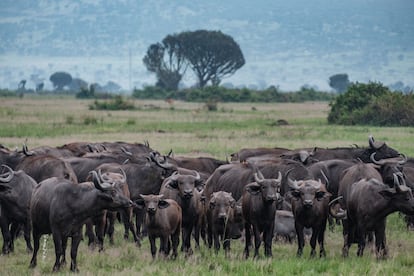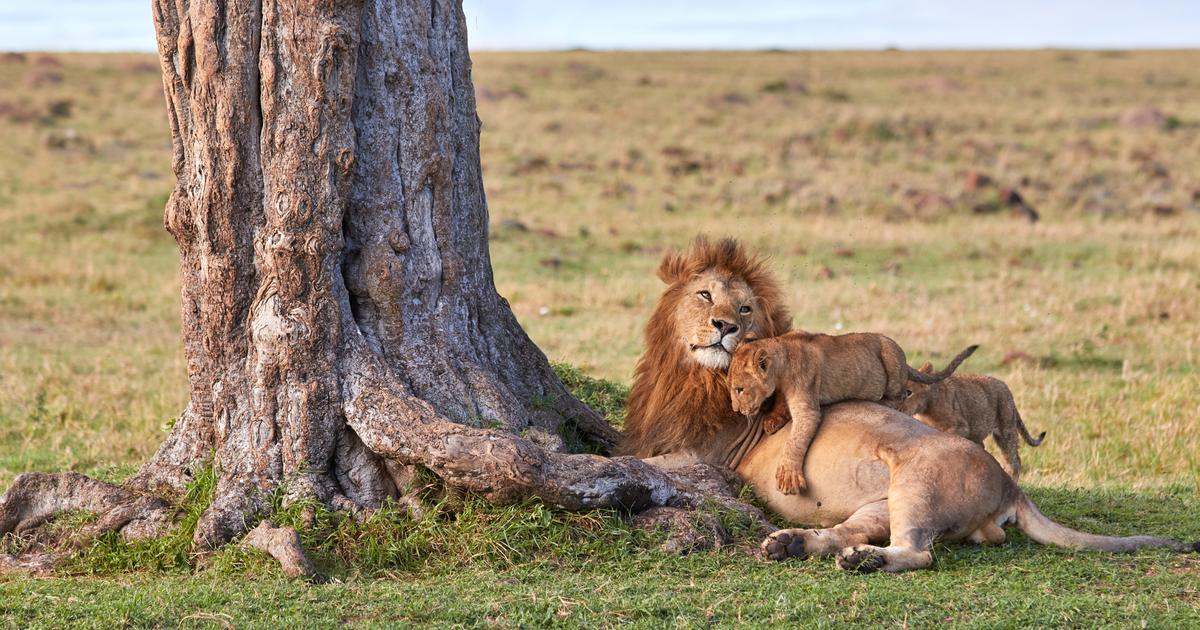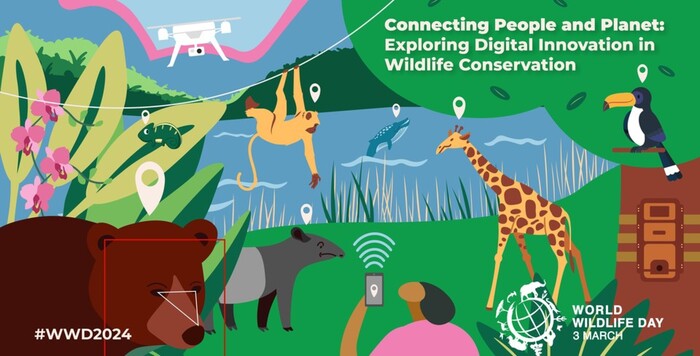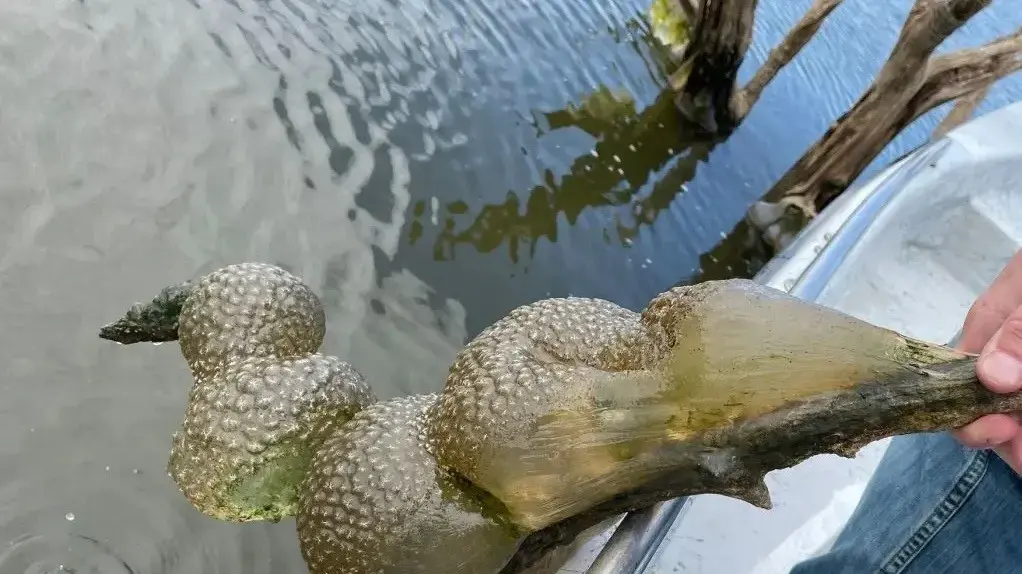Veronika Night chose her future at dawn, a few minutes after a deafening noise woke her up in the dark.
He didn't need to leave his room to understand what was going on.
That roar could only mean one thing: elephants had broken into their neighbors' orchards, so a mob of peasants tried to scare them away with shouts and blows.
Night, who was 15 at the time, watched the pachyderms glimmering in the dawn.
In addition to the size of these animals, he was amazed at how they defended their young: the adults ran alongside him to protect them.
She wanted to contemplate them longer, but the peasants had no mercy.
The voracious appetites of elephants, which eat 100 to 200 kilograms of plants every day, could destroy an orchard in a matter of minutes.
In southwestern Uganda, where much of the population depends on their crops for basic needs, a smashed garden means starving for months.
More information
The rangers who watch over the savannah
"So I decided I wanted to be a ranger," Night says. 10 years later, he patrols the savannas of Queen Elizabeth National Park in southwestern Uganda, wearing a camouflage uniform and a Kalashnikov on his shoulder. "Rangers have never been so busy," he explains. “Every day we find dozens of animal traps. Since the coronavirus pandemic began, poaching has exploded. Therefore, we must not lower our guard ”.
Night and his companions walk slowly, single file.
They are in an open savanna, occasionally dotted with round bushes or cactus-like plants, known as
Euphorbia candelabrum
.
They must focus all their attention on the ground.
Errors are not allowed.
That is the only way to move safely through the territory of lions, leopards, hyenas, hippos, elephants and Kaffir buffalo, among other animals.
We have a responsibility to protect nature for future generations, so we cannot fall asleep.
Veronica Night, Queen Elizabeth National Park Ranger
Covid-19 has slowed down almost everything.
However, the illegal hunting of animals has not diminished.
Quite the opposite.
After losing their livelihoods, hundreds of people identified poaching as an option to eat meat or earn additional income, and took to nature reserves.
For Night and his companions, it has been a grueling year: never have so many people been arrested or so many traps recovered.
While the rest of the world was paralyzed by the disease, rangers from the Uganda Wildlife Authority (UWA) worked tirelessly.
"We have a responsibility to protect nature for future generations, so we cannot fall asleep," Night says with a shy smile.
A threatened ecosystem
Night's team just surprised a herd of Kaffir buffalo.
They are stubborn and unpredictable animals, but now they are 50 meters away, too far away for rangers to identify them as a major threat.
The buffaloes have stopped all their movements.
They are paralyzed, their heads turned in the direction of the rangers.
They stay in this way for a long time, until the breeze suddenly changes orientation, carrying the scent of humans into position.
Then they start running in the opposite direction and a dust cloud envelops the sheet for several minutes.
At present, in this national park it is common to find herds with dozens or even hundreds of animals, but this has not always been the case.
A herd of Kaffir buffalo watches the rangers.SUMY SADURNI
From the late 1960s to the mid-1980s, Uganda's political instability, with five coups in 20 years, as well as regimes that massacred tens of thousands of people to crush their opponents, weakened the capacity of the government. been to pursue poaching. Although the number of animals decreased dramatically across the nation, the Queen Elizabeth National Park was one of the worst hit by these scabechinas. While in the 1960s this protected natural area was home to more than 4,000 African elephants, in 1980 only about 150 remained.
In the 1990s, the Ugandan government decided to end this scenario.
And it succeeded to a large extent: animal populations began to increase.
According to an aerial census published in 2018, Queen Elizabeth National Park now has a similar number of elephants to that of the 1960s.
This protected natural area is in the center of the Albertina basin, one of the most biodiverse regions on the planet, with more than half of the bird species in Africa and about 40% of those of mammals.
But this dazzling array of wildlife, as well as the growing populations of many animals, are still in jeopardy.
According to Dr. Ludwig Siefert, director of the Uganda Carnivore Program (UCP), an NGO specializing in the research and conservation of large predators, “the media and organizations often focus their attention on the most charismatic animals, like lions or elephants.
But each plant or animal has a special function, maintaining the balance of its ecosystems, so that all are important.
If one species disappears or its populations are reduced, the rest are also in danger ”.
If one species disappears or their populations are reduced, the rest are also in danger
Ludwig Siefert, Director of the Uganda Carnivore Program (UCP)
Dr. Siefert mentions the example of the common hippos: Queen Elizabeth is currently home to about 6,000 hippos, but their populations are declining. Poachers eat or trade their meat, a popular food in the villages that surround the natural space. That is why they have become the main victims of hunters, a fact that threatens hundreds of species of plants and animals.
In places with seasonal wetlands or rivers, overpopulation of hippos can become a problem because their droppings alter the quality of the water. But in the Queen Elizabeth National Park, where water is abundant every month of the year, the waste from these mammals provide essential nutrients for fish populations, in addition to fertilizing the savannahs adjacent to wetlands, favoring the appearance of grasslands. of grass where both herbivores and their predators feed.
"Although populations of some iconic animals, such as elephants, have increased in Uganda, illegal hunting is still one of the main threats to Ugandan wildlife," says environmental crimes investigator Edith Kabesiime.
The International Union for Conservation of Nature (IUCN) described this crisis for biodiversity in numbers: mainly due to poaching and the loss of their habitats, ungulate populations decreased by 52% in East Africa and by 85% in the west of the continent from 1970 to 2005. As a result of this damage, the number of predators that feed on ungulates - lions, leopards, cheetahs, hyenas - is also rapidly decreasing.
The roots of poaching
"During patrols, it's important to use all your senses to spot poachers," says Aggre Wafula, one of Night's companions.
“As we walk, we continually interpret the terrain: crushed grasses, footprints, bent branches, smells… Every detail is important.
You also have to recognize the sounds that birds or some antelopes make when something scares them ”.
This afternoon, Wafula leads a group of six rangers.
Night ranks second.
Your mission is to cover the back of your partner.
Before starting a patrol, the agents distribute among themselves a specific task that they must carry out throughout the day, so that each one can focus all their attention on that role.
They protect each other.
They keep all angles guarded.
They advance as if they were a single person.
Ugandan rangers receive paramilitary training and make their patrols armed with AK-47s (kaláshnikovs).
Assault rifles serve both to defend against attacks by wild animals and poachers.SUMY SADURNI
According to a study by the International Institute for Environment and Development (IIED) published in 2015, the reasons for poaching in Uganda are, above all, “the search for subsistence methods, the desire for commercial profit, the traditions cultural issues, the alleged inequality in distributing the benefits of protected natural areas, and other political reasons ”.
After analyzing dozens of cases, the researchers concluded that "low economic capacity is the main driver of crimes against wildlife."
Covid-19 made that scenario worse. Due to the drop in tourism, thousands of people have lost their jobs. Uganda opened its international borders in mid-2020 and has registered a relatively low number of coronavirus infections, but has not recovered the trends of previous years: many hotels remain at half gas, and several tour operators do not have jobs for their employees.
At 66 years old, Patrick Nabaseya, a pastor from the village of Kasenyi, near the Park, agrees with the IIED's findings.
It grew up in the savannah.
He began herding his family's cows shortly after learning to walk.
His parents taught him that wild animals were not his enemies, even though lions sometimes attacked livestock.
"When I was little, my family members told me that we should love all animals, not just cows," he says.
Nabaseya belongs to a pre-colonial nation of shepherds - the Basongora - who for a long time found the consumption of bushmeat repulsive.
However, that is changed.
According to this rancher, poverty is driving many young basongora to hunt within national parks.
For Nabaseya, it's a sad moment: both her culture and the animals she learned to respect could disappear for decades to come.
Sitting on a rock, watching his herd of cows grazing slowly in a very green meadow, Nabaseya sums up the main problem in one sentence: "It is impossible to control the young when they are hungry."
FUTURE PLANET can follow on
,
and
, and subscribe
here
to our 'newsletter'
.














